Twitching of the face
definition
For us, the face represents the gateway to the social environment. The first glance is usually the face of the person opposite, which is why the majority of people attach particular importance to the health and care of their face.
If there are "irregularities" in the face, this is often immediately visible to everyone. This can be a burden for the person concerned. Jerks are also an undesirable abnormality that can disturb or irritate both the person affected and the person standing opposite.
Muscle twitches are called myoclonia or fasciculations in technical terms. If you experience twitching of the face, it can have different causes. The spectrum ranges from emotional states to the effects of various substances to serious illnesses. Even if a trivial origin of the muscle twitches is to be expected, certain diseases should be ruled out by a specialist if they are recognizable.

causes
Before you worry about serious illnesses, it should be clear beforehand: twitches in the face can be triggered by small things. For some people, stress at work is enough and "the eye gets nervous" because the eyelid twitches.
Overall, emotionally charged states favor the occurrence of such phenomena. Too little sleep or a slight magnesium or potassium deficiency can trigger such symptoms - but these usually recede again.
While muscle twitches can occur naturally under tension or while falling asleep, there are also some neurological diseases whose clinical picture is characterized by involuntary twitching. Only the face is rarely affected, but repeated (long-lasting, annoying) twitching of the face should exclude epilepsy, multiple sclerosis (MS), amyotrophic lateral sclerosis (ALS) and encephalitis.
A hemifacial spasm may also be the cause. This is an irritation of the facial nerve, which is responsible for the facial muscles (nervus faciales). However, this is a rather rare clinical picture.
Muscle twitching is much more often associated with a so-called tic disorder, which is a disease from the field of neurology and psychiatry. The patients repeatedly compulsively repeat a certain movement or expression, which is usually triggered by certain triggers. Tourette's syndrome is particularly well known.
Taking medication and other substances can also cause twitching of the face. Antipsychotics (or neuroleptics) are mainly used for schizophrenia, mania and psychotic delusional or agitated states. In particular, the typical neuroleptics (e.g. Haloperidol®, Chlorpromazin®, Melperon®) cause extrapyramidal motor disorders, which can be manifested in muscle twitching of the face, among other things.
Excessive alcohol consumption and illegal drugs can also cause facial twitches.
Learn more at: What can be causing eye twitching?
Twitching from drugs
In principle, a wide variety of drugs can cause muscle twitches or cramps. Especially the activating substances like Amphetamines (Speed), MDMA (Ecstasy), cocaine or methamphetamine (Crystal meth) lead to a increased need for exercise. This activation can exceed the controlled movements and then involuntary twitching trigger on the face and other muscles of the body.
Another possibility is that the twitches after consumption occur. On the one hand, this involves activating the body and, on the other hand, a out of balance brought Electrolyte system fundamentally. As a result of increased exercise, users sweat, losing electrolytes, and straining muscles. These either react with Convulsions or with an intermittent one Overexcitability. Excessive use of cocaine and heroin also causes severe nerve and muscle cell damage.
Generally speaking, everyone has drug and drug abuse too serious damage and death can lead. Please find yourself medical helpif this applies to you.
Read on here: The consequences of drugs
The influence of alcohol
In addition to illegal drugs, alcohol can also cause facial twitches. Although it is valued as a stimulant in our society, it should not be underestimated that alcohol is also addictive and can seriously damage the body and the psyche.
On the one hand, there is acute alcohol intoxication - poisoning with alcohol after excessive consumption. In addition to nausea, vomiting and impaired consciousness, muscle twitching can also occur. These are caused by spontaneous activation that can be traced back to alcohol intoxication. The twitching usually stops as soon as the acute condition is overcome.
On the other hand there is the systematic abuse of alcohol for years. Alcohol is a neurotoxin, which in the long term attacks and destroys the nerve cells in the body. So-called denervation occurs. This then results in a spontaneous activation of the muscle cells because the limiting factor of the nerves is no longer applicable. The twitching can then be permanent, as the tissue has been irreversibly damaged.
See more under: The consequences of alcohol
Twitching in multiple sclerosis
multiple sclerosis is a disease in which the insulating covering of the nerve cords is damaged by the body's own immune system. This creates a Over-excitability or failure of these nerves.
The disease usually runs in Spurts, whereby some of the symptoms usually resolve over a certain period of time. Many patients report twitching of the face during a flare-up. These can often be seen as the first signs of impending deterioration, as small nerve fibers are responsible for the movements (and can be triggered more quickly when excited). Especially frequently that seems to be eyelid to be concerned.
In addition or in isolation, the Corner of the mouth pull out. In principle, these movements are possible on all facial muscles, but they are particularly noticeable in the eyes or mouth of the person concerned, as they can disrupt or impair interpersonal communication.
You might also be interested in: Eyebrow twitches, Eye twitching - what to do?
Can that be an indication of epilepsy?
In fact, it is possible that facial twitching is underlying epilepsy. In particular, if the twitches occur repeatedly and are accompanied by twitches in other parts of the body, epilepsy becomes all the more likely. As a rule, these types of epilepsy are not dangerous, but a neurologist should be consulted if such symptoms are present. Although an unequivocal diagnosis of epilepsy is not always possible, the specialist can usually assess very well whether epilepsy is present or whether other causes are more probable, based on the symptoms and with the help of technical examinations (especially EEG). If necessary, he can also initiate anti-epileptic therapy, which can usually reduce the twitching relatively quickly and effectively or even eliminate it completely.
Read more on this topic at: Symptoms of epilepsy
Stress as a trigger for facial twitching
stress can have various effects on the body. Different systems go crazy in persistent stressful situations. When everyday life is emotionally stressful, it affects the sleep, on the Hormones, on the Mood and numerous other aspects.
Twitching in the face can be an expression of such an emotional imbalance. A pathological cause can usually not be found. Often they face everything young people to neurologists because of such symptoms, because they have read or heard of serious illnesses that may be associated with muscle twitching.
However, after a short diagnosis it turns out that the involuntary movements are not caused by a disease, but by the existing stressful situation. Here can Stress caused by everything be what the Emotionally upsets the patient: a breakup, quarrel, work, pressure to perform or the loss of a loved one.
Therapy consists in coping with personal problems, possibly in combination with conversation therapy, and learning stress management techniques (e.g. meditation, yoga or similar).
You might also be interested in: How can I reduce stress?
Twitching of the face when nervous
Nervousness is a reaction of the nervous system. This reacts to a stressful situation, which is associated with negative experiences in the memory. Nervousness can be normal, e.g. on the second attempt after a failed exam. Almost everyone knows the feeling of nervousness and can remember corresponding situations.
Some people with a psychiatric or mental illness are confronted with such situations on a daily basis. It is mainly about anxious personality disorder and social phobia. With both diseases, contact with other people and especially strangers is a major problem. The fear of doing something wrong, of saying something or of attracting negative attention in any other way is extremely great.
The fear and insecurity are expressed, for example, in twitching of the face. These are in turn perceived as unpleasant and therefore lead to further avoidance behavior - a vicious circle for those affected. Psychological or psychiatric treatment (e.g. talk therapy) can often help to deal productively with the fears and to bring about an improvement.
What influence does the psyche have on facial twitches?
Jerks in the face can also be caused by the person's psyche alone. Everyone reacts differently to excitement, stress, joy and suffering. While some live out their feelings on an emotional level, with others the mind hits the body again. Such extreme emotional states can be too Twitches lead in the face that then Expression of emotional stress are.
The smallest muscle twitches or fasciculations on the eyelid occur particularly frequently. These can last for different lengths of time, but usually dissipate after conscious emotional relaxation.
Fear of what the twitching means can in turn exacerbate the symptom.
treatment
- If the twitching is due to a lack of certain nutrients, the therapy is relatively simple. The affected person should concentrate on a conscious and balanced diet. Products with sunflower or pumpkin seeds can help against magnesium deficiency. Potassium-rich foods such as potato dishes or avocado can also improve the deficiency situation. Sodium can easily be added to the food by adding sufficient salt. If an adequate intake cannot be guaranteed through the diet, dietary supplements may also be used.
- If the twitches are of psychological origin and can be attributed to stress or an emotionally stressful situation, relaxation can help. Every person should plan time for themselves during the day, in which one does not let anything or anyone distract them. Restful and adequate sleep can also dissolve tension - whether of a physical or mental nature.
- If a neurological disorder is underlying, a doctor should prescribe appropriate medication. In the case of a diagnosed epilepsy, this would be, for example, anticonvulsants (anti-seizure drugs) such as Lamotrigine® or Valproat®. The drugs dampen the excitability of the nervous system and thus also the excitation of the muscles. In MS, you work with cortisone and other immunomodulators (drugs that affect the immune system).
- If the twitching on the face is a symptom of poisoning, it is important to treat it specifically with detoxifying measures.
- If the muscle twitching cannot be limited by the treatment measures described, there is still the option of botox injection. Botox (botulinum toxin) is a nerve poison that is also used in the context of cosmetic surgery. When injected, it paralyzes the muscle by inactivating the nerve responsible.
Symptoms
The symptoms are smallest muscle contractions in the face. These can appear on different parts of the facial muscles, but are mainly focused on that Mouth and eye area. This occurs particularly often Twitching of the eyelid on. Affected people describe the twitches as trembling or fluttering of the eyelid.
If facial twitches persist, those affected may too a headache come. You try that suppress involuntary movement and therefore tense up.
Muscle twitching can be symptom of several different neurological diseases be or under a emotional stressful situation occur. In both cases, the uncontrollable state usually has a negative effect on the mind of the person concerned - the result is a depressed mood.
diagnosis
If there is twitching on the face, it is one Eye diagnosis, d. H. the doctor sees at a glance which symptom is leading the patient to him. The extent of the muscle twitching indicates whether it is actually just fasciculations of individual muscle fiber bundles or movement disorders.
The latter can e.g. caused by the long-term use of antipsychotics / neuroleptics. Whether it is a harmless muscle twitch or whether it occurs as part of an existing nerve damage can be determined by a EMG be detected.
With EMG, which means electromyography, small needle electrodes are inserted into the muscle to be examined in order to derive its electrical voltage differences. From these, conclusions can be drawn about the activity of the muscle.
If the EMG shows abnormalities, it can be assumed that a Nerve damage present.
Twitching of the mouth
Mouth twitches most likely affect you tongue or the Corner of the mouth and occur psychogenic (triggered by the psyche), through substance abuse or medication. The tongue is a dense construct of muscles and therefore reacts sensitively to even the smallest neuronal damage. While the smallest muscle twitches in other parts of the body cannot be perceived with the naked eye, but can only be shown in the EMG, they can be seen on the tongue.
Stronger jerks are also an indication of one Nerve damage. There is a possibility that harm to the person responsible Cranial nerve (Hypoglossal nerve) is responsible for the symptoms. This controls the entire tongue muscles, so that twitching or paralysis can occur in the event of nerve damage.
Also a beginning AS (Amyotrophic lateral sclerosis) can be noticeable at the beginning by twitching of the tongue. Since this is a very serious nerve disease, you should always consult a doctor if you suspect it.
How long do the twitches last?
A twitch itself only lasts a fraction of a second. As soon as the "twitching" lasts longer, it is a cramp, which has other causes. Frequently, fasciculations occur in quick succession. The series can only last a few minutes, but it can also last for hours.
The longer the twitches on the face, the more stressful the condition becomes for the person concerned. Fasciculations often appear again and again, even if they are not based on a neuronal disease. However, if the duration exceeds the individual tolerance, one should not shy away from a doctor's visit and seek professional help. Perhaps the specialist can identify and uncover emotional problems that were previously hidden or not associated with the symptom.
Twitching of the face in children
If facial twitches occur in children, the number of possible or probable causes is considerably reduced: Alcohol and drugs are generally out of the question, and drugs are also significantly less common than in adults - even if, of course, some children have to take medication there have also been cases in which toddlers in particular plundered their parents' medicines and mistook them for candy. Psychological stress, hemifacial spasm and multiple sclerosis, which are among the most common causes of facial twitching in adults, are also very unlikely in children.
If the twitching occurs again and again and is no longer tolerable, this should still be clarified by a doctor. Because it can be particularly stressful for children when they are perceived by other children as "strange" because of their twitching and thus become outsiders. Usually no dramatic causes for the twitching can be found, occasionally epilepsy can be diagnosed. In most cases, however, this can be effectively treated with an anticonvulsant, which also reduces the twitching of the face or even disappears completely. Of course, care must be taken to ensure that a drug that is suitable for children is selected. These include carbamazepine, valproate and lamotrigine.
Read more on the subject at: Epilepsy in children
Twitching of the face and headache
If the twitching of the face persists for a long time, many sufferers develop headaches over time. This is usually due to the fact that those affected tense up because of the unpleasant twitches when trying to suppress them. If this is the case, relaxation and loosening exercises for the facial muscles can help - even if they can admittedly look strange at times.
If the headache is too severe and quick relief is needed, you can of course also take a painkiller, but this should by no means become a habit. Instead, it is better to consult a doctor if such complaints persist. They may be able to prescribe medication to relieve the twitching in order to break the cycle of twitching and headaches.
Read more on this topic at: Tension headache
Twitching of the face after a stroke
Facial twitches are significantly more common in patients in the recovery and rehabilitation phase after a stroke than in the average of the general population. This is usually the case with patients in whom the face is also affected by the consequences of the stroke, for example in the form of numbness or paralysis. The accumulation of twitching after a stroke is probably due to healing and restructuring processes in the brain, in which parts of dead nerve fibers regain a certain degree of functionality or connections between nerve tracts are redesigned. In this sense, the twitching of the face after a stroke is usually not a cause for concern, but rather a positive sign and expression of progressive healing.
Read more on this topic at: stroke
Is that a tic?
In a way, that's a question of definition. In a broader sense, the term tic describes sudden, largely involuntary, brief expressions or movements of individual muscles or entire body parts, so that facial twitches also fall under this category. As a rule, such phenomena are only referred to as tic if they can be suppressed for a longer or shorter period of time until the internal tension becomes too strong.
This is much more common with tics such as certain finger movements, winking or frowning. Jerks in the face, on the other hand, are usually not preceded by any internal compulsion, they usually pass completely unannounced and sometimes even without the person concerned noticing. In summary, it can be said: twitching in the face by definition does count as tic, but in the narrower sense this term is reserved for other phenomena.
Read more on this topic at: Tic

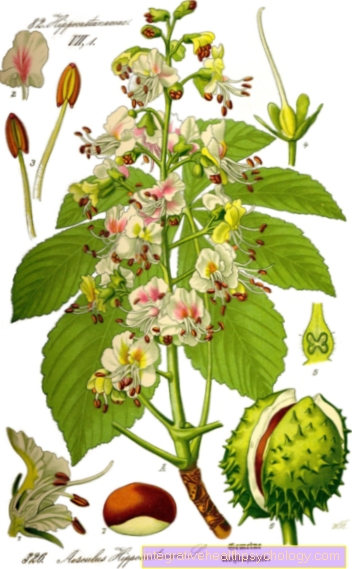
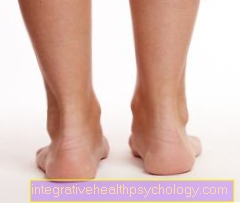
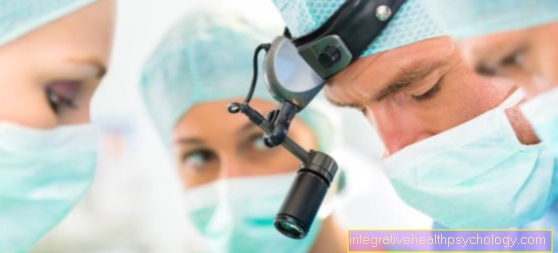
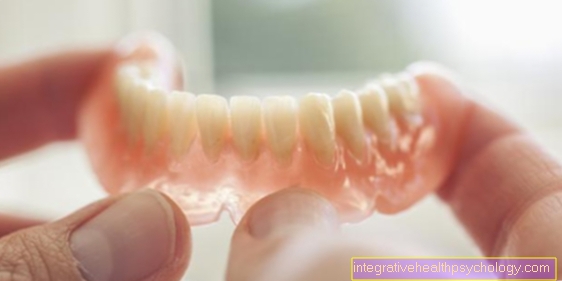
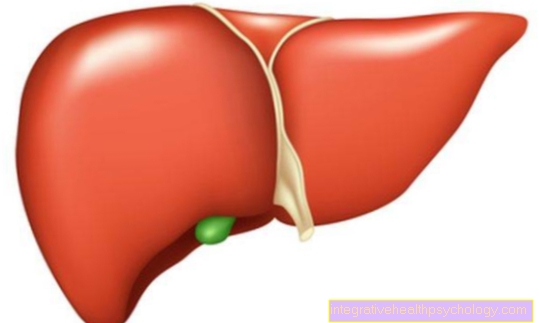

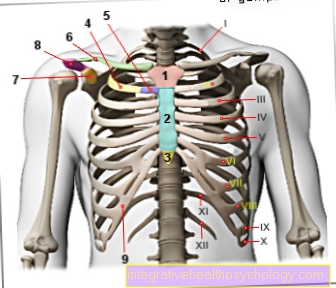
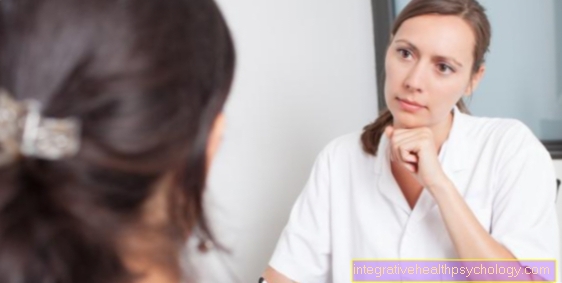
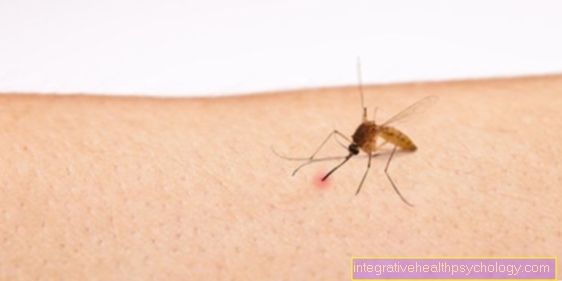
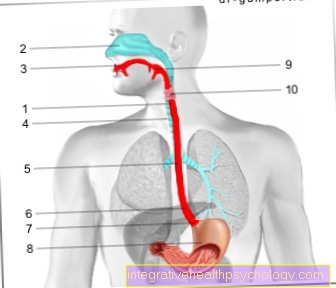
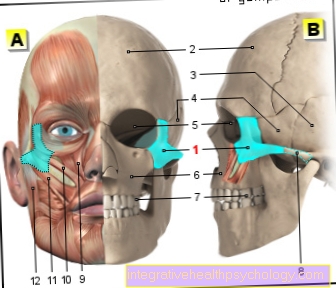
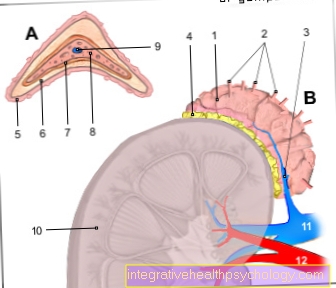
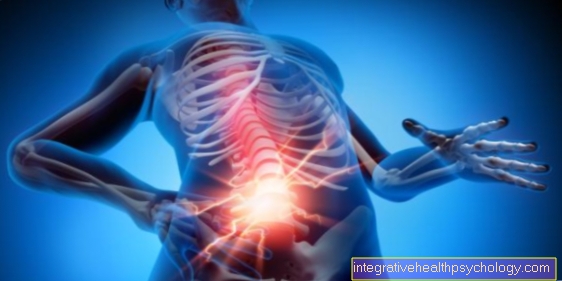

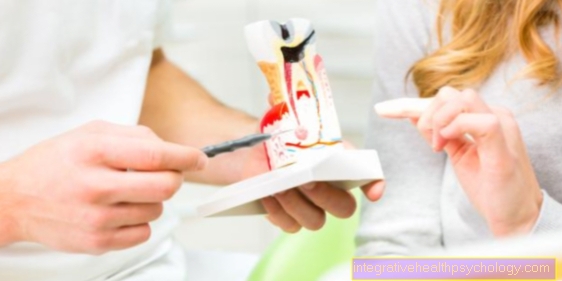
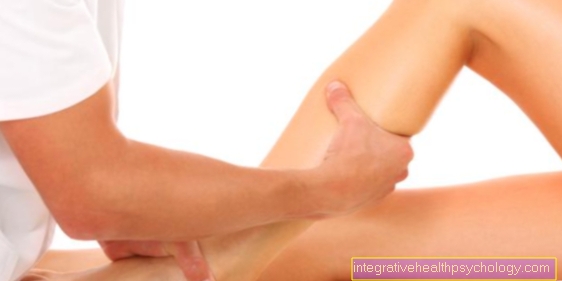
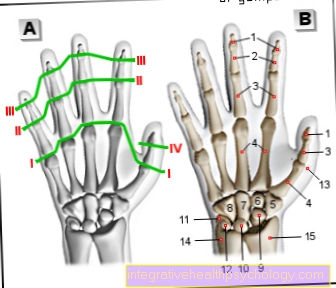

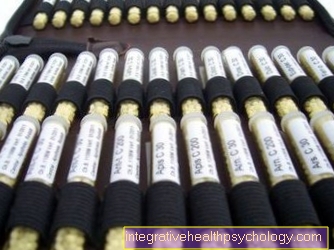
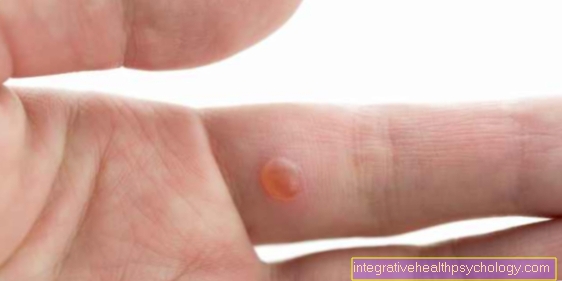


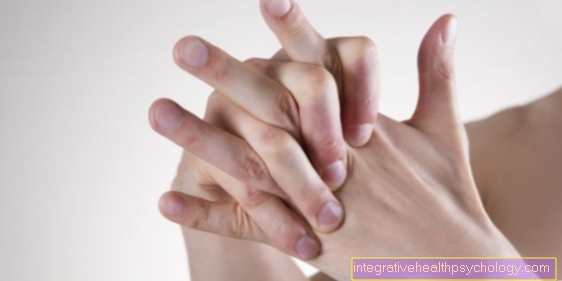

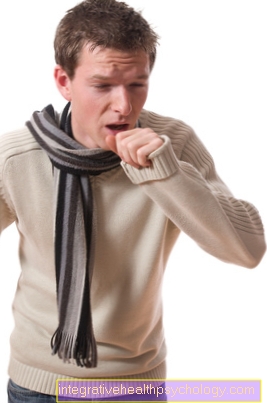
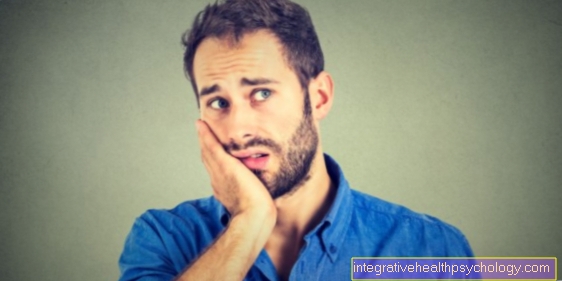
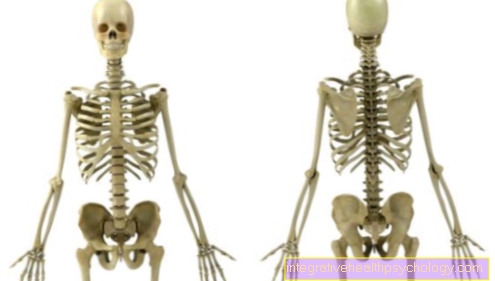
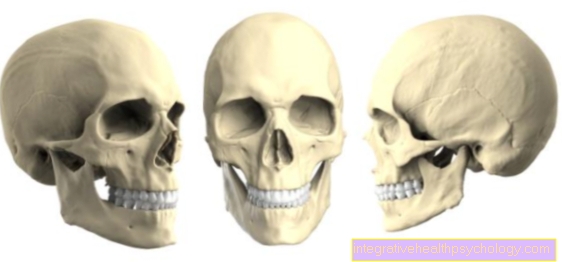
.jpg)